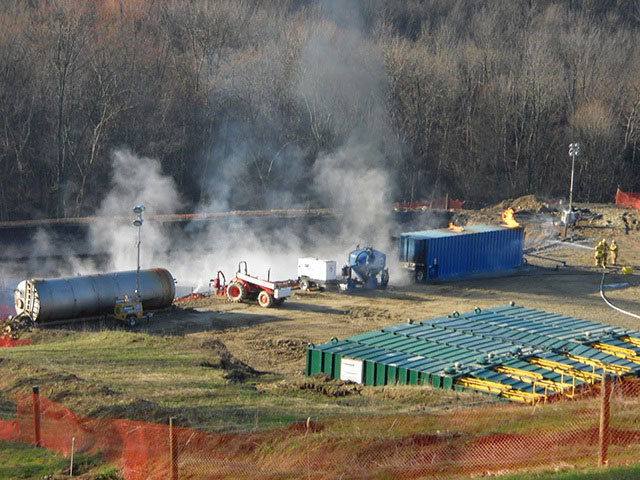
Continental Resources Inc. is fracking again.
Crude almost doubled in the past four months to more than $50 a barrel, enough for Continental to dispatch fracking crews to unfinished wells in the Bakken shale region, where the Oklahoma City-based driller is the largest operator, Chairman and Chief Executive Officer Harold Hamm said in interviews with Bloomberg News and Bloomberg TV in New York on Thursday.
Those wells had been left uncompleted as swooning crude prices last year forced explorers to halt projects to conserve shrinking cash flows.
Hamm, who has taken a high-profile — though informal — role advising Republican presidential candidate Donald Trump on energy policy, said the oversupply of crude that crushed oil prices and pushed dozens of U.S. explorers into insolvency has disappeared.
Supplies will fall short of demand by as much as 2 million barrels a day next year, adding impetus to the ongoing crude rally, he said. By the end of 2016, WTI could hit $70, he said.
Oil needs to exceed $60 before the company Hamm founded and controls as majority stakeholder would deploy rigs to drill fresh wells, the billionaire wildcatter said. Fracturing oil-soaked rocks with high-pressure jets of water and sand — or fracking — is typically the final and most expensive step involved in completing a shale well.
“That has started,” Hamm said, referring to the fracking of unfinished wells. “We’d need to see WTI north of $60 before we ever thought about adding drilling rigs.”
Most Bakken shale drillers will start completing their backlogs of unfinished wells when crude reaches the $55 to $60 range, Peter Pulikkan, a Bloomberg Intelligence analyst, said in a note on Thursday, citing a presentation last month by Lynn Helms, North Dakota’s top oil regulator.
At the end of 2015, there were 4,290 uncompleted wells in the U.S., and almost 30 percent of them were confined to two shale regions: the Bakken in and around North Dakota and the Permian in West Texas and New Mexico, according to data compiled by Bloomberg Intelligence.
The rebound in oil prices and tightening supply-and-demand balance probably means the wave of bankruptcies among U.S. shale producers is ending, Hamm said. He sees the global oversupply turning into a deficit, which “is going to add a lot of upward pressure quickly,” he said.
Hamm, 70, attended a summit with tax experts and other business leaders at Trump Tower in New York on Thursday. An adviser role would be a familiar position for Hamm, who four years ago worked with then-Republican nominee Mitt Romney.
Hamm said Trump has been earnestly listening to his ideas, dating back to a 30-minute discussion of the American energy renaissance in 2011. Trump may not come off to the public this way, “but he’s someone who is very willing to listen to folks that he believes,” the oil executive said.
His top advice? Remove regulatory barriers to energy development and shift the U.S. approach to fossil fuels. Under the Obama administration, there’s “a target on everybody’s back in this industry,” Hamm said.
“I don’t think our industry has had a fair shake with this administration,” he said. “We’ve brought on the cleanest, best fuel in the world — natural gas — and all this supply, and what’s been the outcome? They just want to eliminate all of us.”